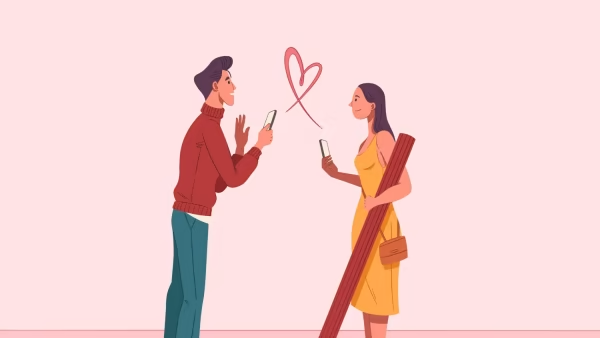From Swipe to Soulmates in Modern Dating: Beware of the Blurred Lines of Consent!
Given the emergence of modern dating terms like ghosting, benching, and situationship, it is crucial to teach today's youth how to navigate consent, recognize red flags, and set boundaries to foster meaningful connections while prioritizing their mental well-being. In this age of instant gratification and connectivity, whether offline or online, assertive communication and the art of setting boundaries, are essential skills to avoid feeling overwhelmed, used, or manipulated and to maintain healthy relationships, romantic or platonic.
In any modern relationships, one of the most critical concerns is the fading of clear boundaries. The digital era has redefined friendships, which often overlap with romantic entanglements, further blurring the boundaries. This concept of consent is often misunderstood or misinterpreted or mishandled in relationships, whether in digital interactions or in person, especially in Indian context. Not everyone is aware of the legal aspects and cultural challenges around the word “consent” in India. There are explicitly informed consents or express consent, implied consent (which sometimes is misunderstood), opt-in consent, opt-out consent.
Irrespective of whether online or offline relationship, whether it’s navigating a hookup culture or exploring deeper connections, understanding and expressing consent should always be at the forefront. Consent is the foundation of healthy, respectful relationships, but unfortunately, misunderstandings happen and many people struggle with voicing their boundaries clearly in casual or digital interactions. Consent involves more than a simple "yes" or "no"; it includes emotional agreement, clear communication of boundaries, mutual respect, and an understanding of personal space. Hence, this new landscape demands a deeper understanding, especially for younger generations who are navigating the blurry lines between casual dating, romantic partnerships, platonic relationship, situation-ship and friendships.
One of the biggest challenges in any relationship is recognizing toxic behaviours before they take a toll. With terms like “love bombing” (showering someone with excessive affection to manipulate) and “breadcrumbing” (leading someone on with minimal effort), it’s important to be aware of red flags early on. Toxic relationships can appear as passionate romances or intellectual partnerships, making it hard to spot warning signs. Explicit and clear communication is essential in navigating these relationships, but digital platforms often limit the depth of interaction. Texts, emojis, and instant messages lack the nuance of face-to-face communication, leading to misunderstandings about consent and boundaries. Understanding consent and setting clear boundaries in relationships is essential for emotional wellbeing, preventing burnout and toxicity.
Building meaningful connections today requires more than just algorithms; youngsters need psychoeducation to set boundaries, communicate effectively, identify toxic behaviors, and embrace clear communication in both romantic and platonic relationships. By mastering these skills and prioritizing mental well-being, youth can foster healthier, more fulfilling connections in an ever-evolving landscape.
Written By : V.S. Suriya Sre, Counselling Psychologist, Chennai





Comments
Post a Comment